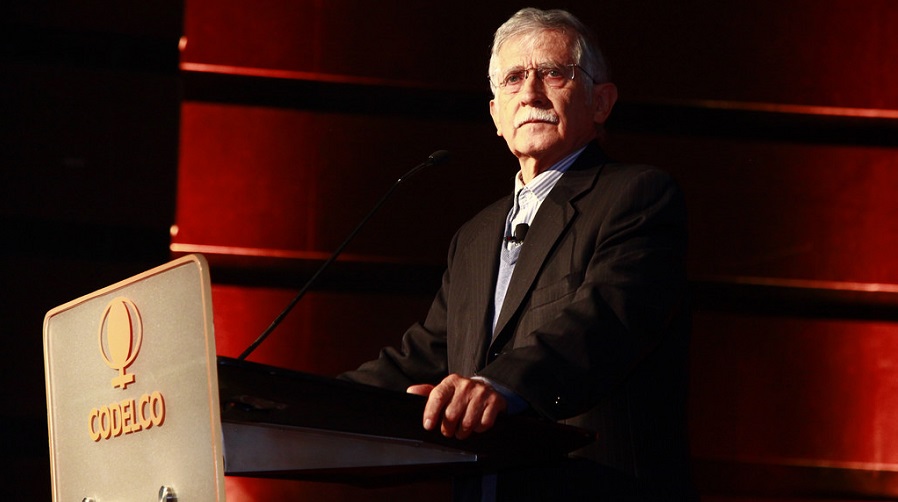World’s top copper miner wants CEO to stay to contain costs

(Bloomberg) — Codelco’s Chief Executive Officer Nelson Pizarro should be reappointed in the role when his term ends next year to maintain the company’s focus on cutting costs and spending, its chairman said.
“A lot of people including myself are promoting the idea that Nelson continues on as CEO for a couple of years if possible,” Oscar Landerretche said in an interview in Shanghai during Asia Copper Week. He’s trying to persuade Pizarro not to retire and has been telling politicians from all parties why he should stay. The state-owned company is the world’s biggest producer of copper.
Pizarro has played a critical role in the drive to crimp spending and force a reduction in costs, Landerretche said. “You need your CEO to be a miner, someone who has been there. It’s about rationalizing the projects, cost-cutting, sanitization of finances, and Codelco has many more years of this to come.” Pizarro has more than 50 years experience in the mining industry.
While Codelco’s production costs have risen this year along with the Chilean currency, they remain below industry averages, Pizarro said in a presentation last week. In 2013, its costs were higher than the average.

Landerretche’s term also ends next year, when the producer’s management will be reshuffled by an incoming government. Chile has a two-way runoff in the presidential election on Dec. 17, pitting billionaire former president Sebastian Pinera against the ruling coalition candidate Alejandro Guillier.
The people running miners such as Codelco need to resist pressures that divert them from the interests of the company and the citizens, Landerretche said. “Every single day you are saying no to someone. You are saying no to the workers, no to contractors, no to the engineers, no to some crazy guy with a crazy idea, no to the government who want to use you to issue debt.”

The focus on costs and spending reflects a wider caution in the industry over committing to new mine investments even as metal prices trade near the highest level since 2013, according to Landerretche. Big producers are more conservative “probably because the memory of getting burned in some of their investments in the super-cycle is still very vivid among stockholders.”
While healthy for companies, “it makes supply even less dynamic because it means they are going to be much slower to produce and to react to the excess in demand,” he said. “They don’t want to make the same mistakes.” Such supply discipline is a driver that may support copper into the next decade.
Pizarro did not immediately respond to an emailed request for comment.
(Story with assistance by Martin Ritchie, and Laura Millan Lombrana)
{{ commodity.name }}
{{ post.title }}
{{ post.date }}




Comments